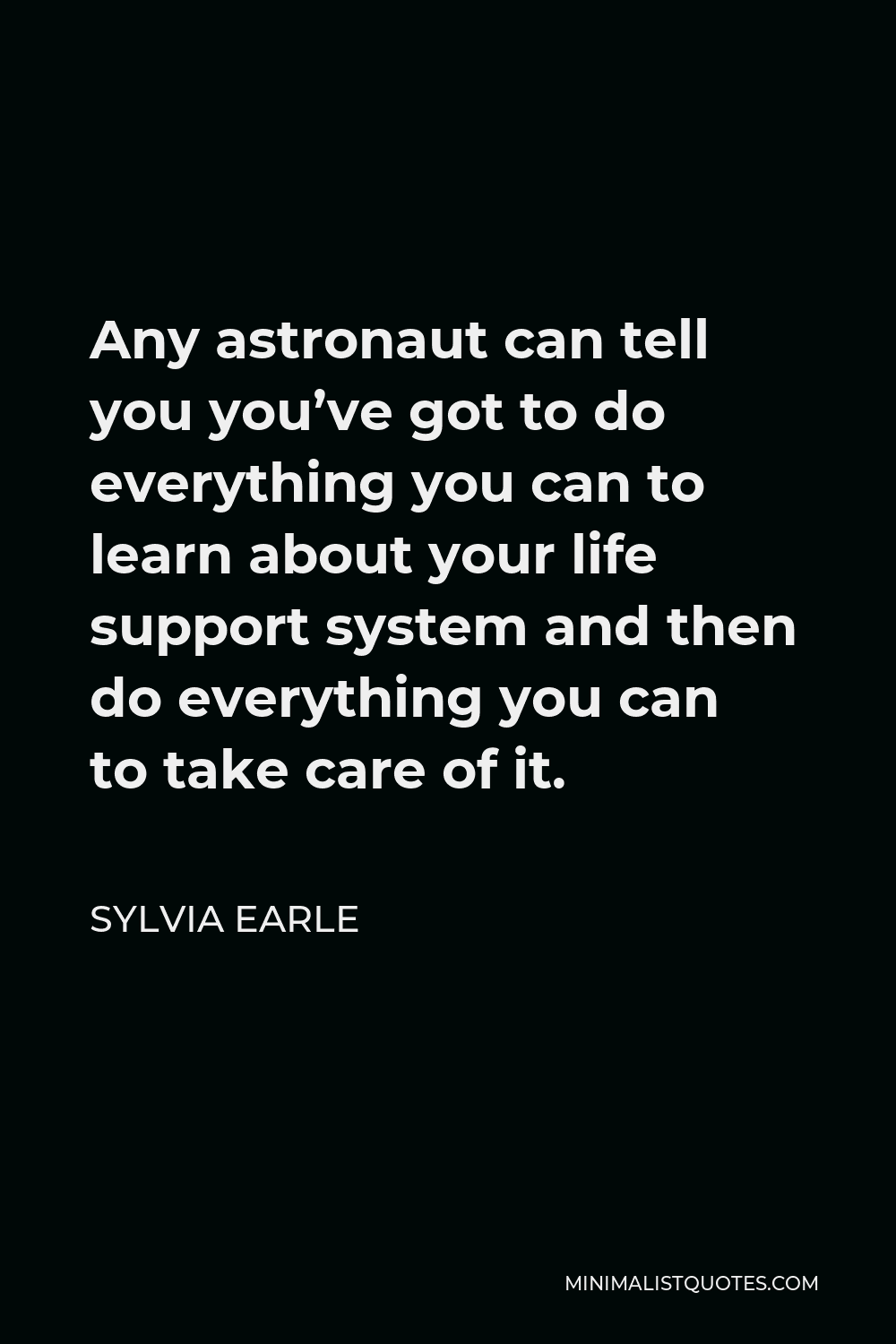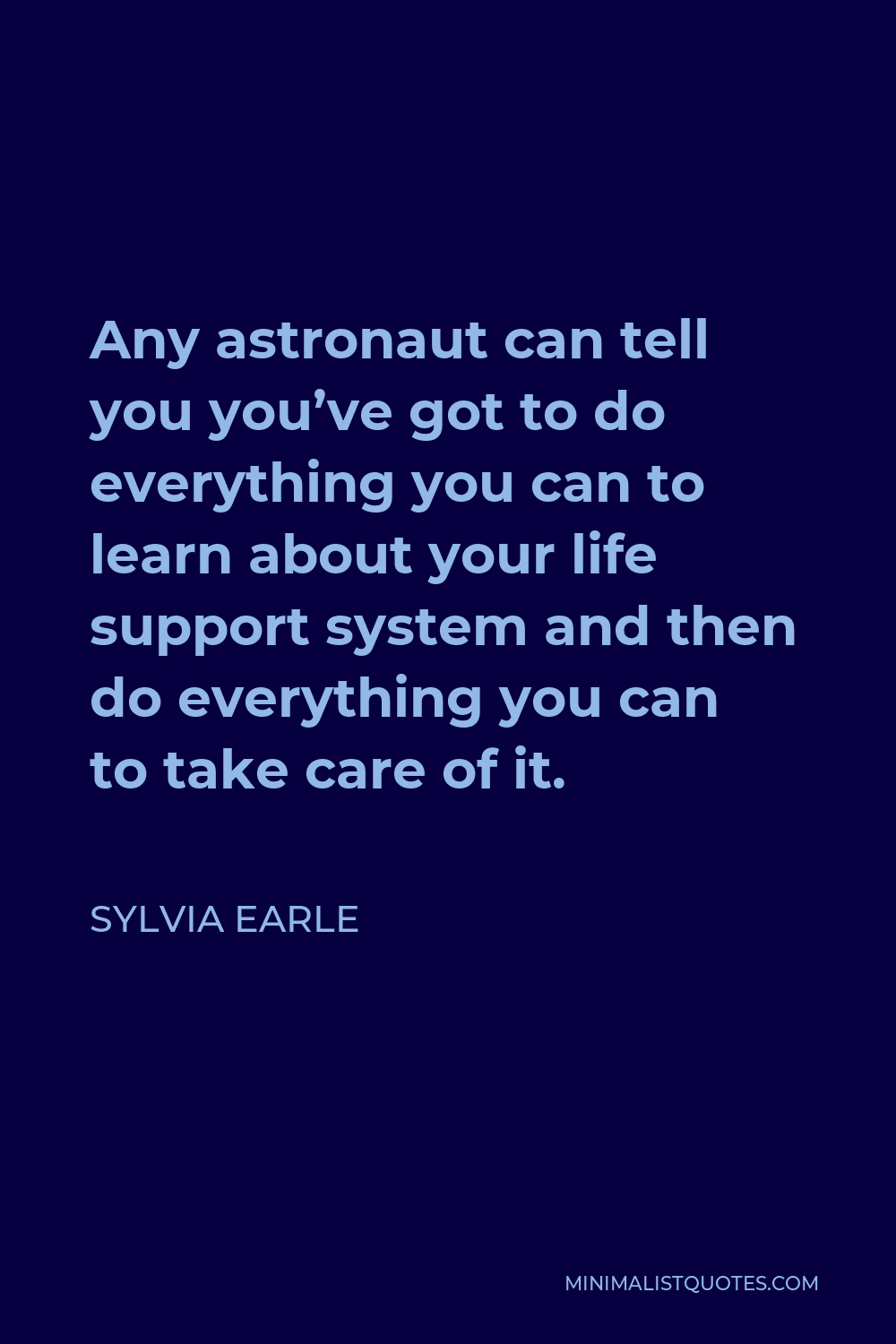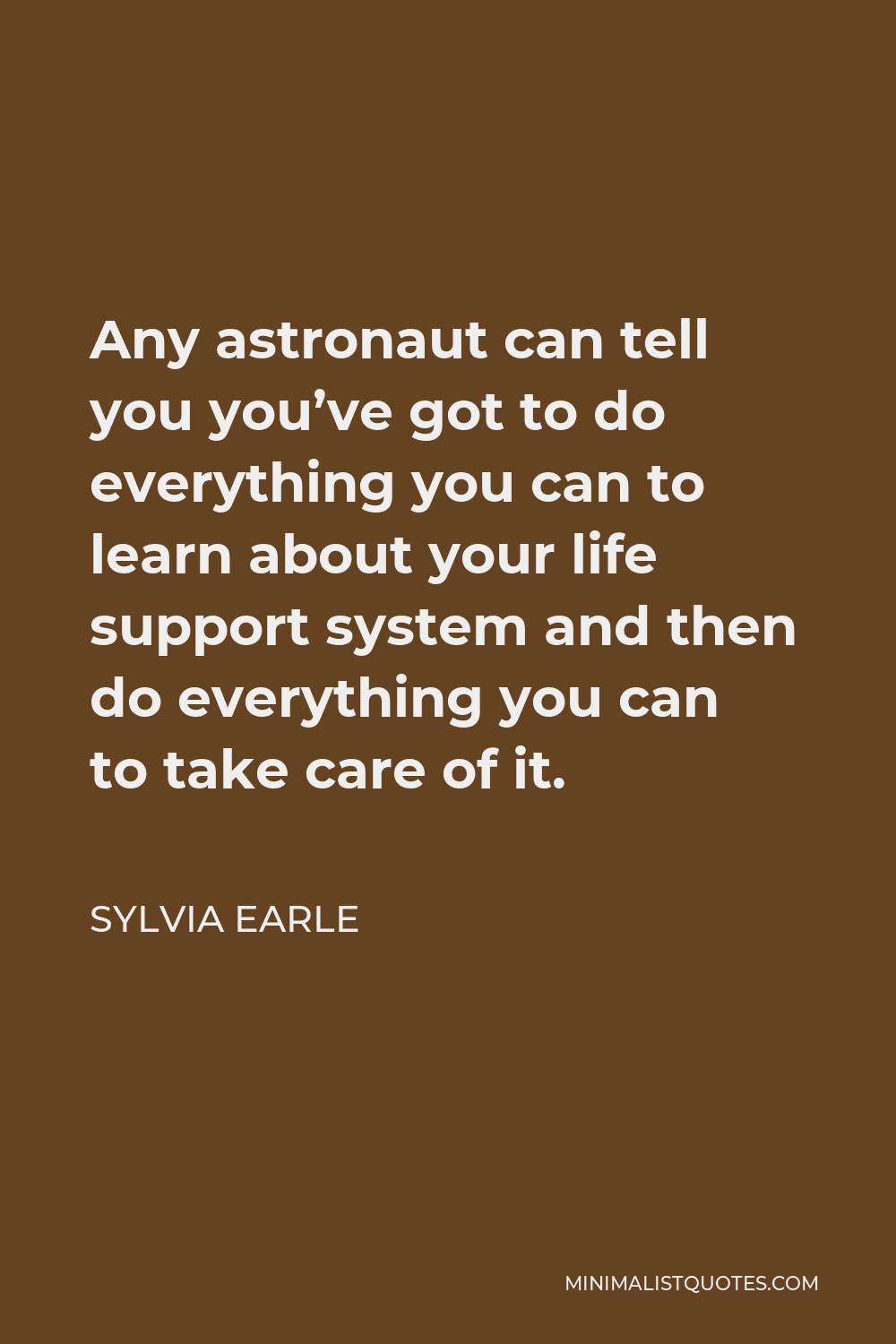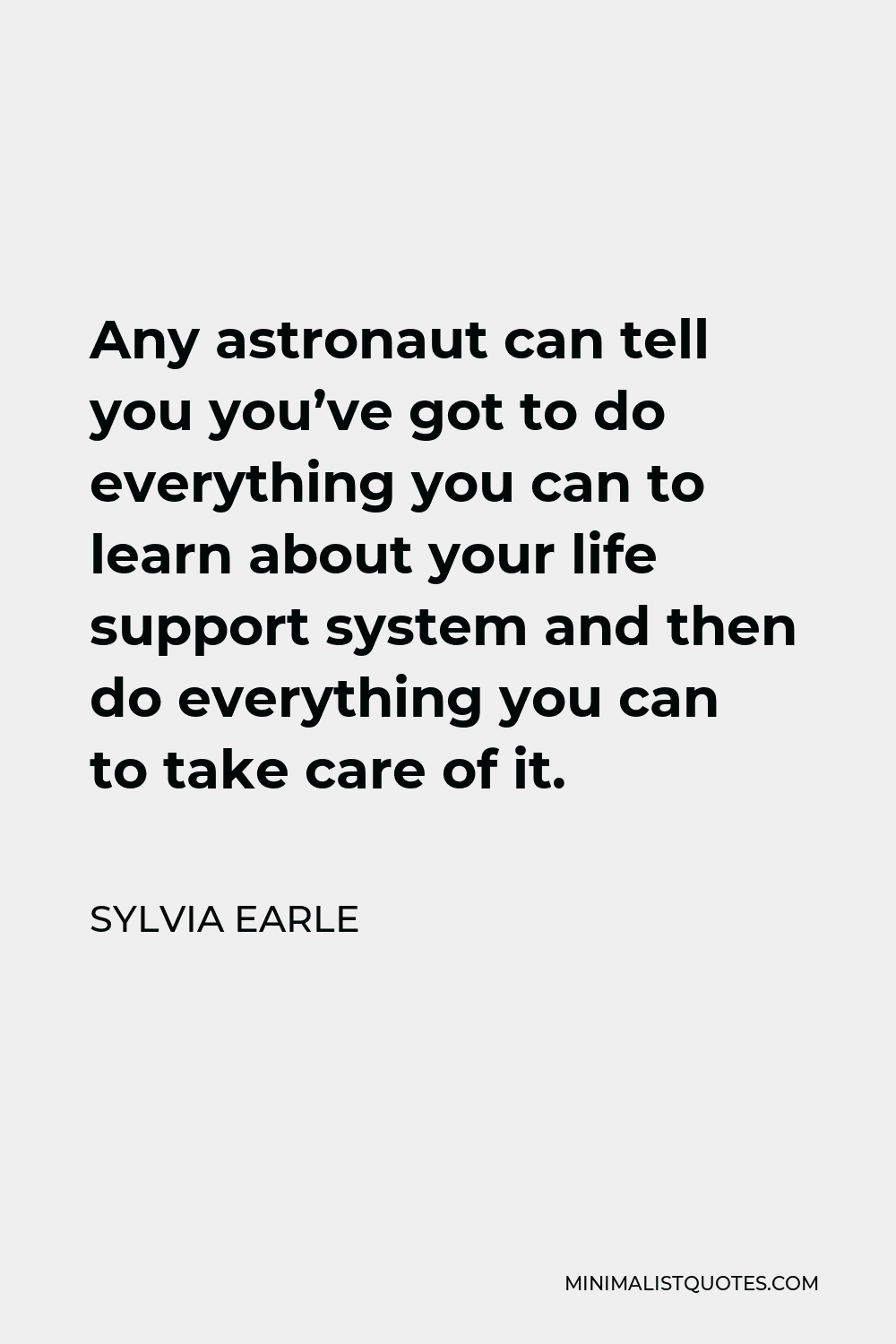Large areas of the Gulf have escaped being scraped by trawls, crushed by more than 40,000 miles of pipelines, or displaced by one of 50,000 oil and gas wells drilled since the middle of the 20th century. Some places have been deliberately protected.
SYLVIA EARLEAny astronaut can tell you you’ve got to do everything you can to learn about your life support system and then do everything you can to take care of it.
More Sylvia Earle Quotes
-





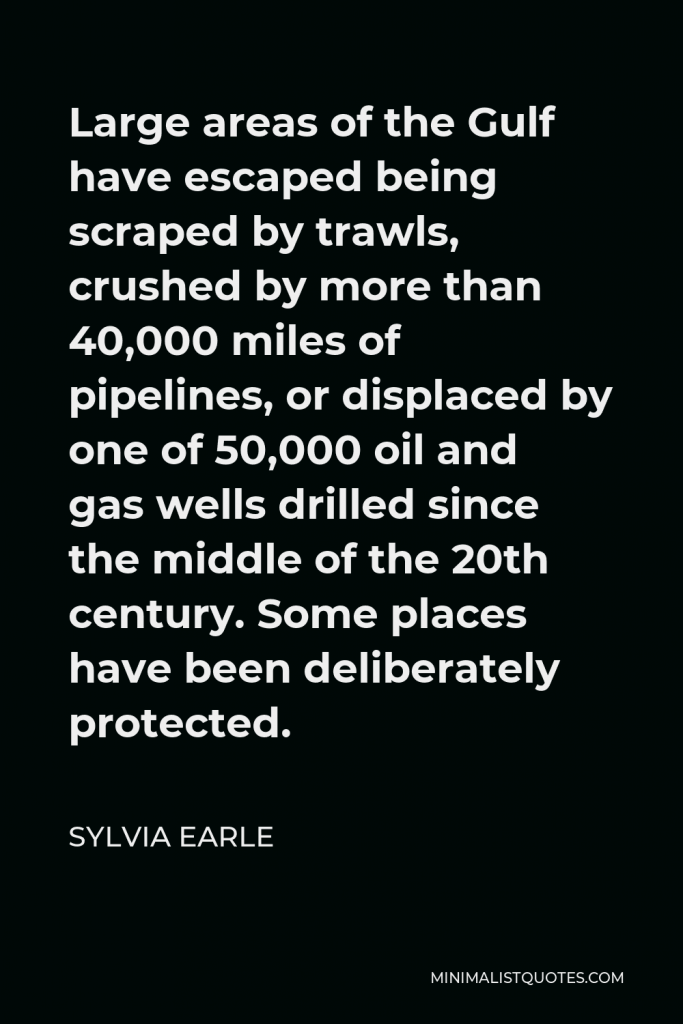

-





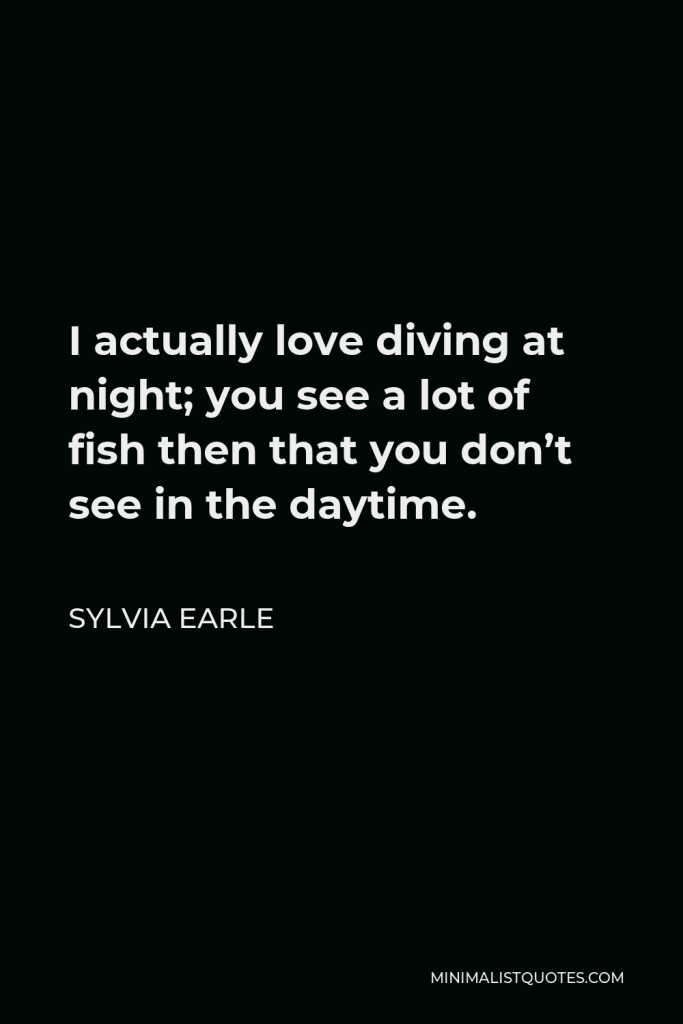

I actually love diving at night; you see a lot of fish then that you don’t see in the daytime.
SYLVIA EARLE -





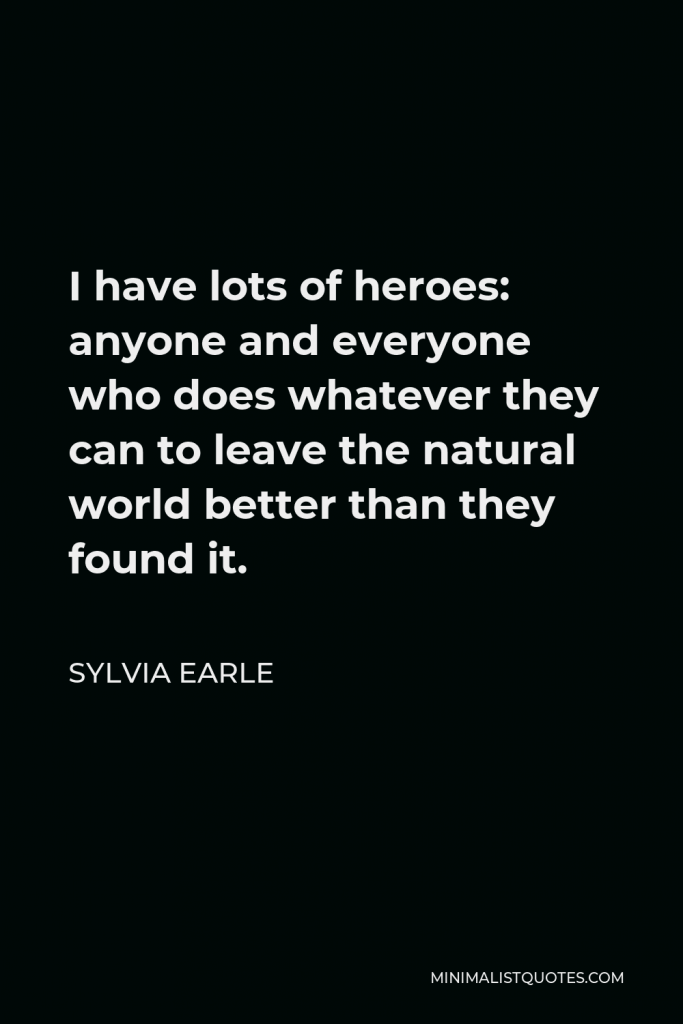

I have lots of heroes: anyone and everyone who does whatever they can to leave the natural world better than they found it.
SYLVIA EARLE -





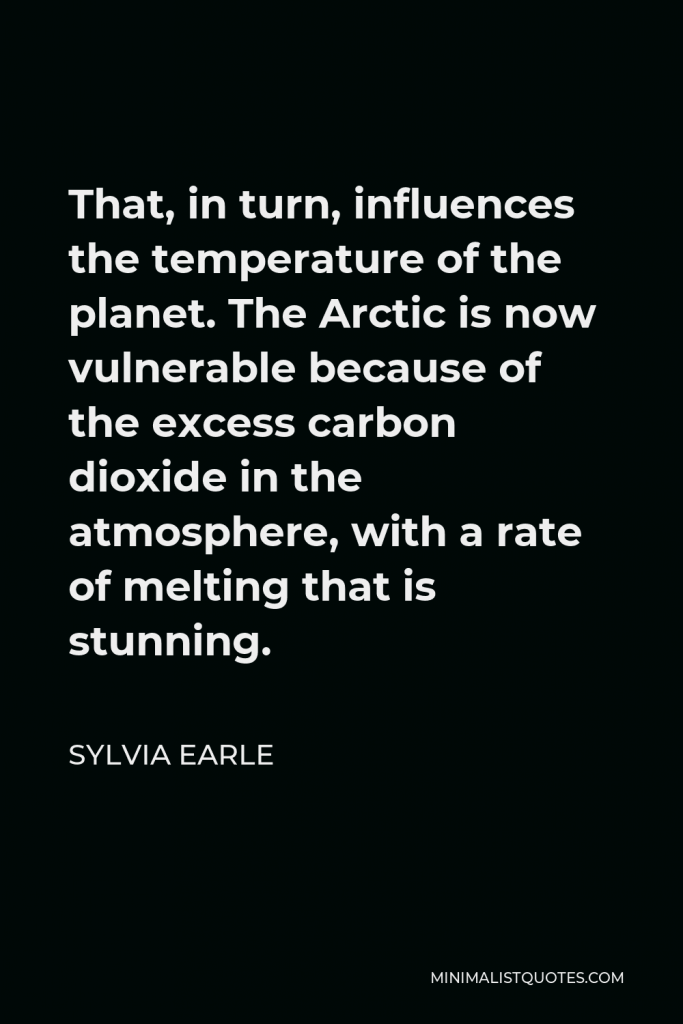

That, in turn, influences the temperature of the planet. The Arctic is now vulnerable because of the excess carbon dioxide in the atmosphere, with a rate of melting that is stunning.
SYLVIA EARLE -







For heaven’s sake, when you see the enemy attacking, you pick up the pitchfork, and you enlist everybody you see.
SYLVIA EARLE -





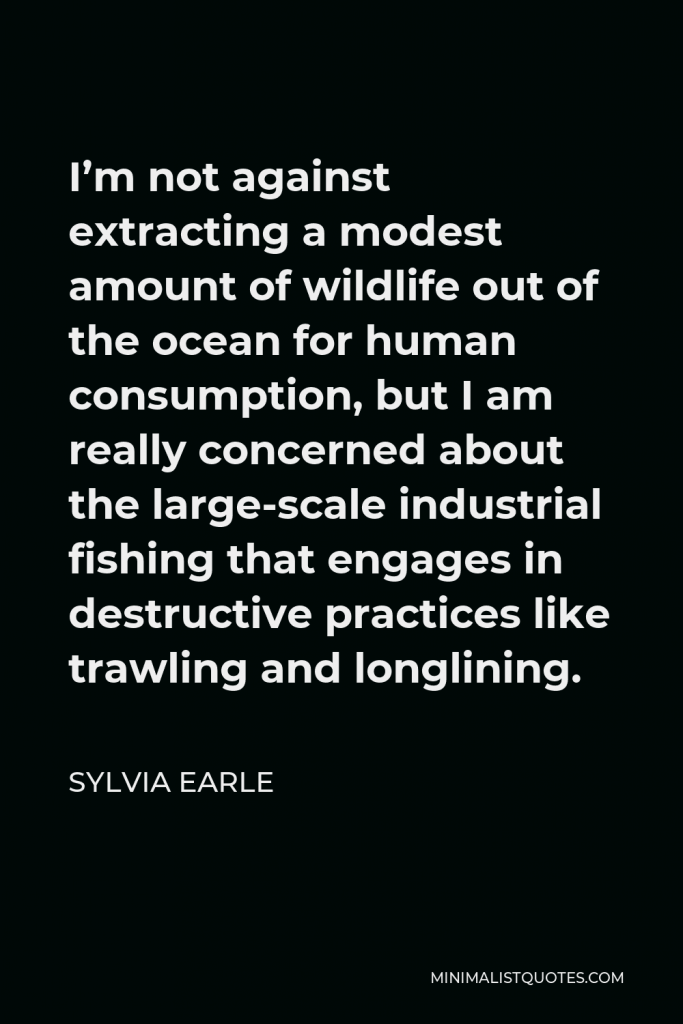

I’m not against extracting a modest amount of wildlife out of the ocean for human consumption, but I am really concerned about the large-scale industrial fishing that engages in destructive practices like trawling and longlining.
SYLVIA EARLE -





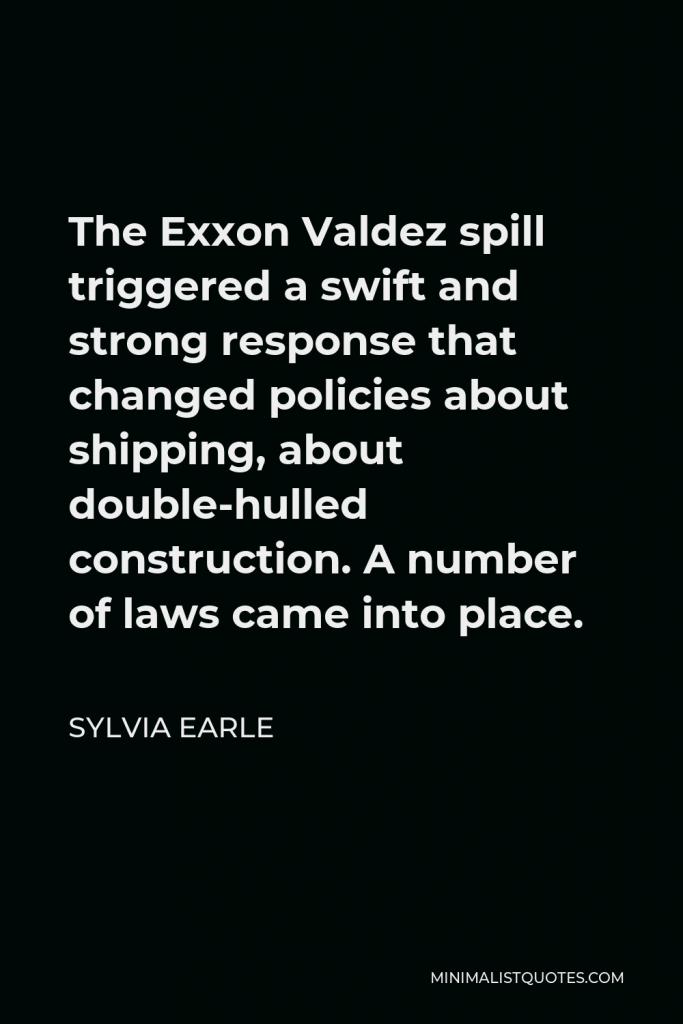

The Exxon Valdez spill triggered a swift and strong response that changed policies about shipping, about double-hulled construction. A number of laws came into place.
SYLVIA EARLE -







I am not in any hurry to grow up.
SYLVIA EARLE -





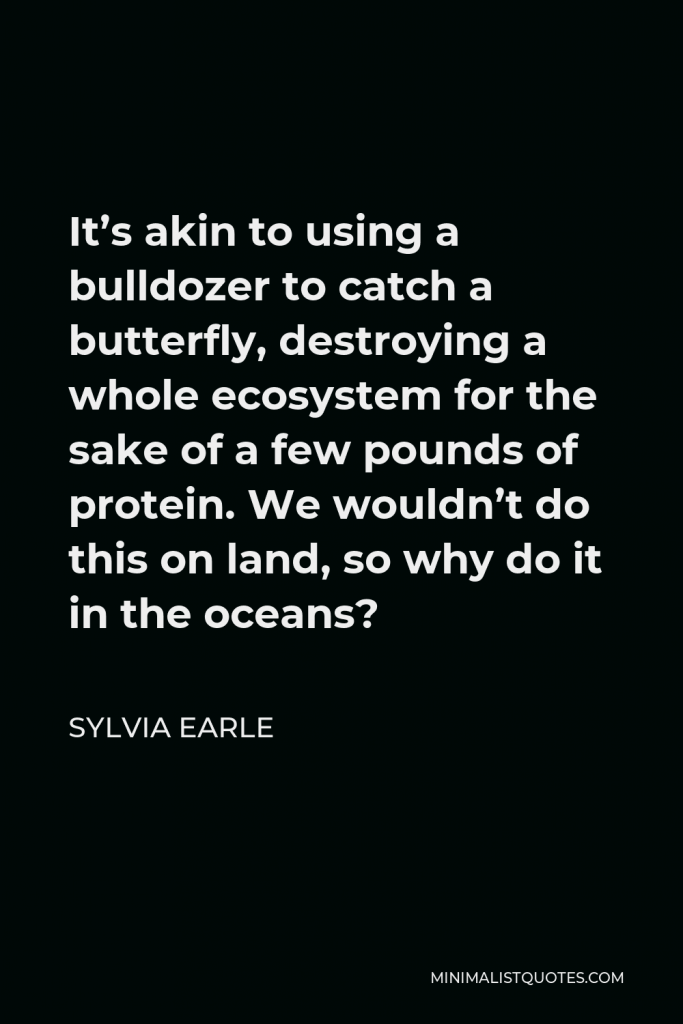

It’s akin to using a bulldozer to catch a butterfly, destroying a whole ecosystem for the sake of a few pounds of protein. We wouldn’t do this on land, so why do it in the oceans?
SYLVIA EARLE -





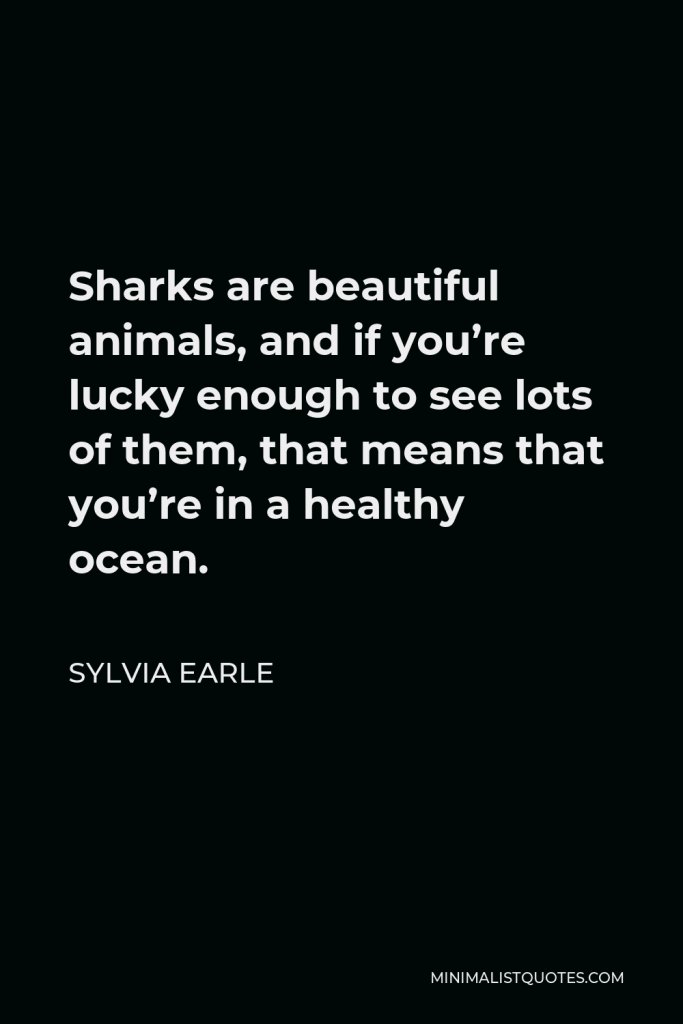

Sharks are beautiful animals, and if you’re lucky enough to see lots of them, that means that you’re in a healthy ocean.
SYLVIA EARLE -





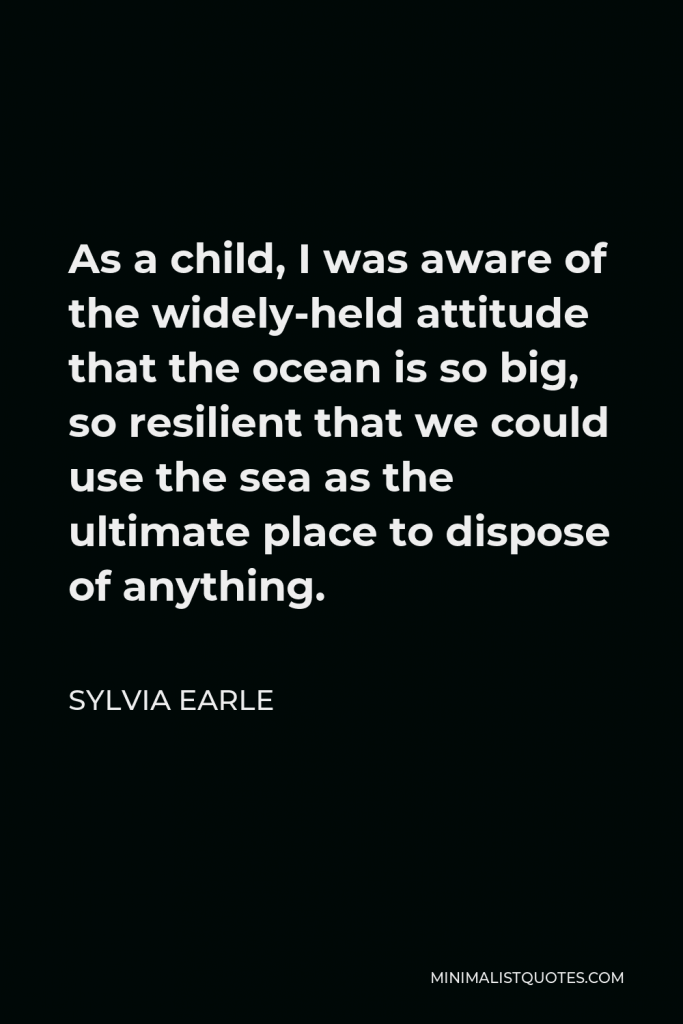

As a child, I was aware of the widely-held attitude that the ocean is so big, so resilient that we could use the sea as the ultimate place to dispose of anything.
SYLVIA EARLE -





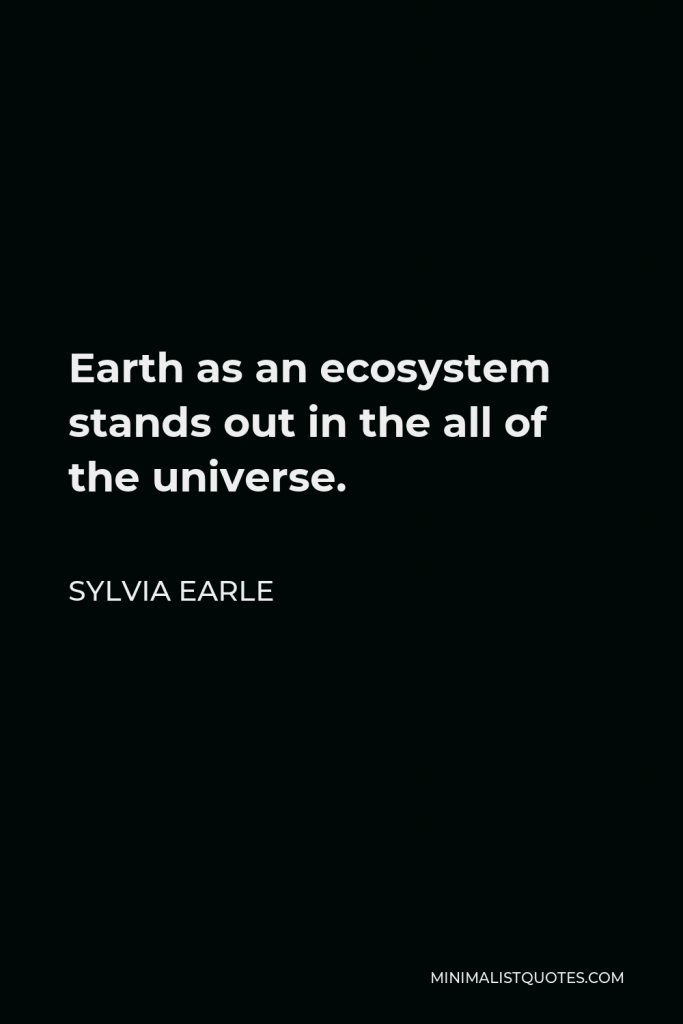

Earth as an ecosystem stands out in the all of the universe.
SYLVIA EARLE -





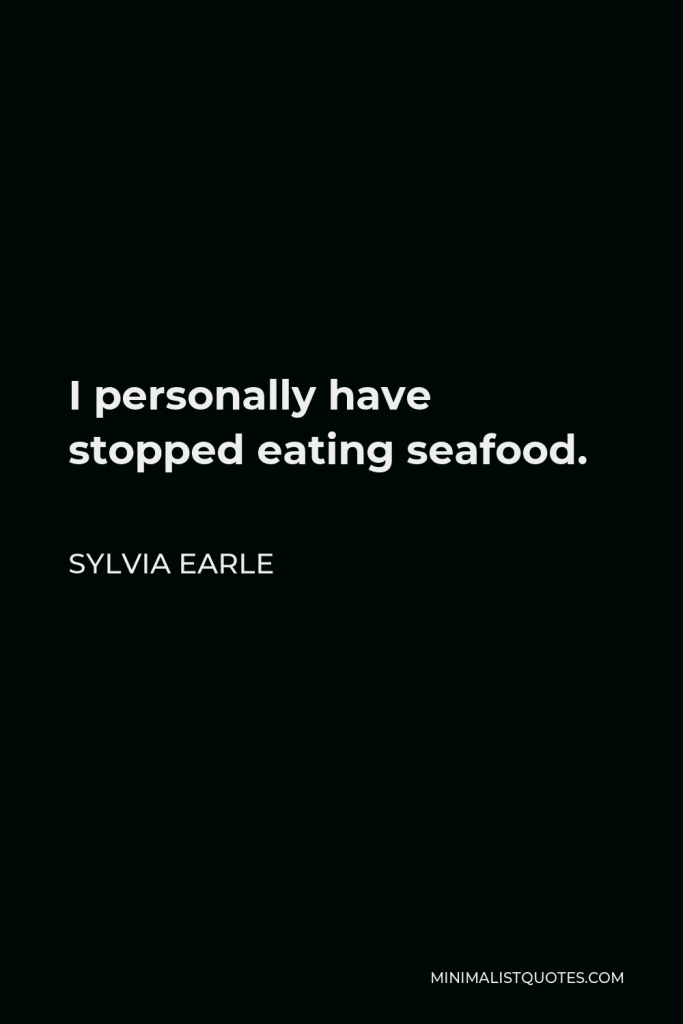

I personally have stopped eating seafood.
SYLVIA EARLE -





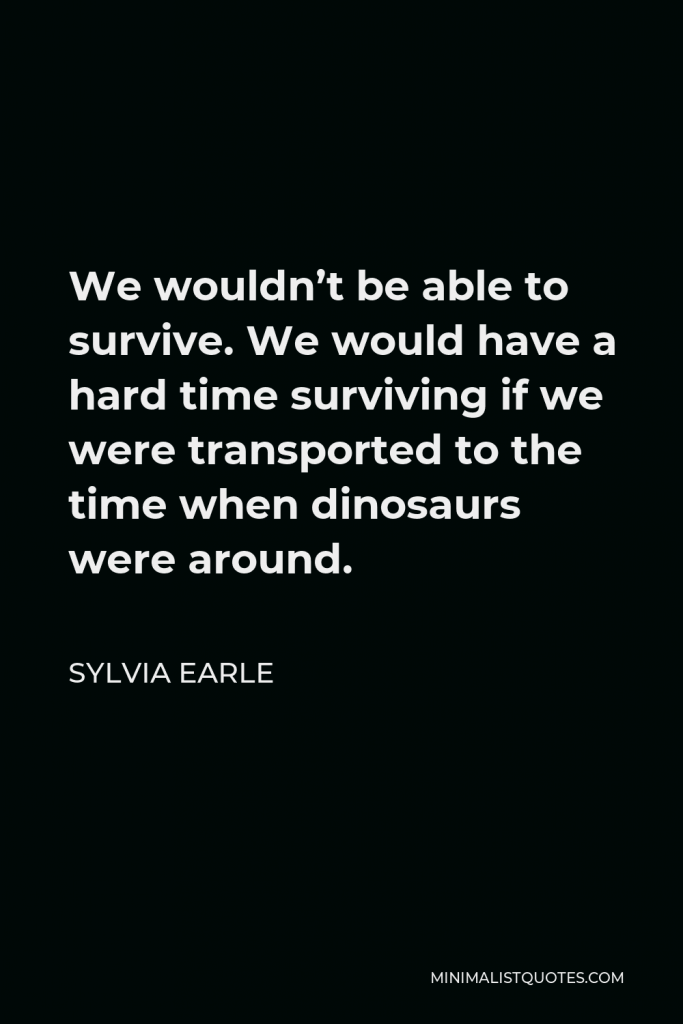

We wouldn’t be able to survive. We would have a hard time surviving if we were transported to the time when dinosaurs were around.
SYLVIA EARLE -





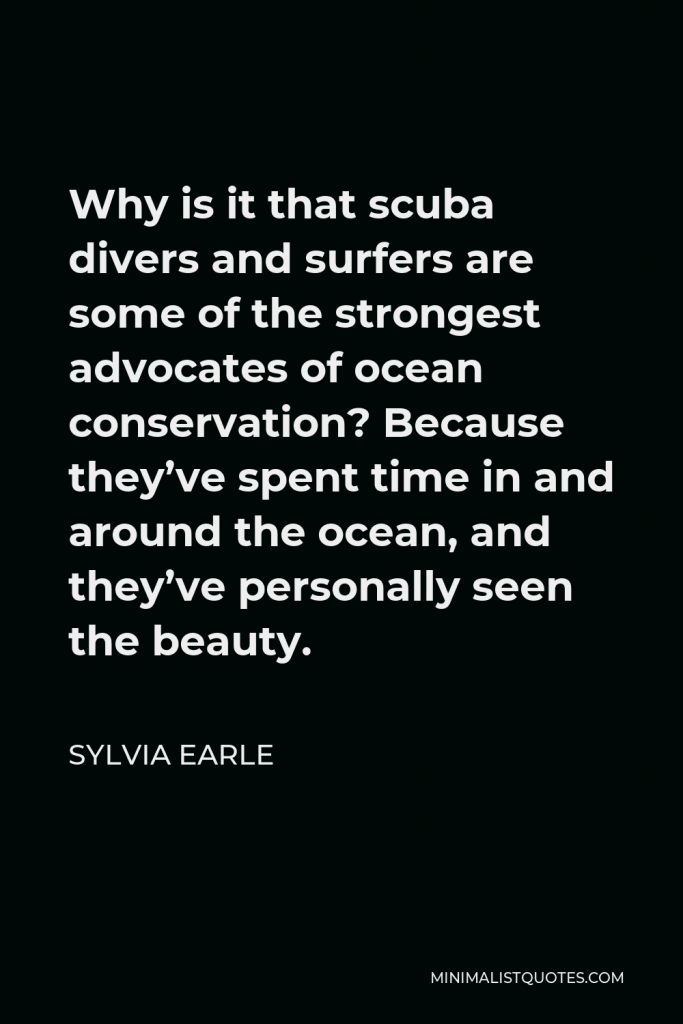

Why is it that scuba divers and surfers are some of the strongest advocates of ocean conservation? Because they’ve spent time in and around the ocean, and they’ve personally seen the beauty.
SYLVIA EARLE -





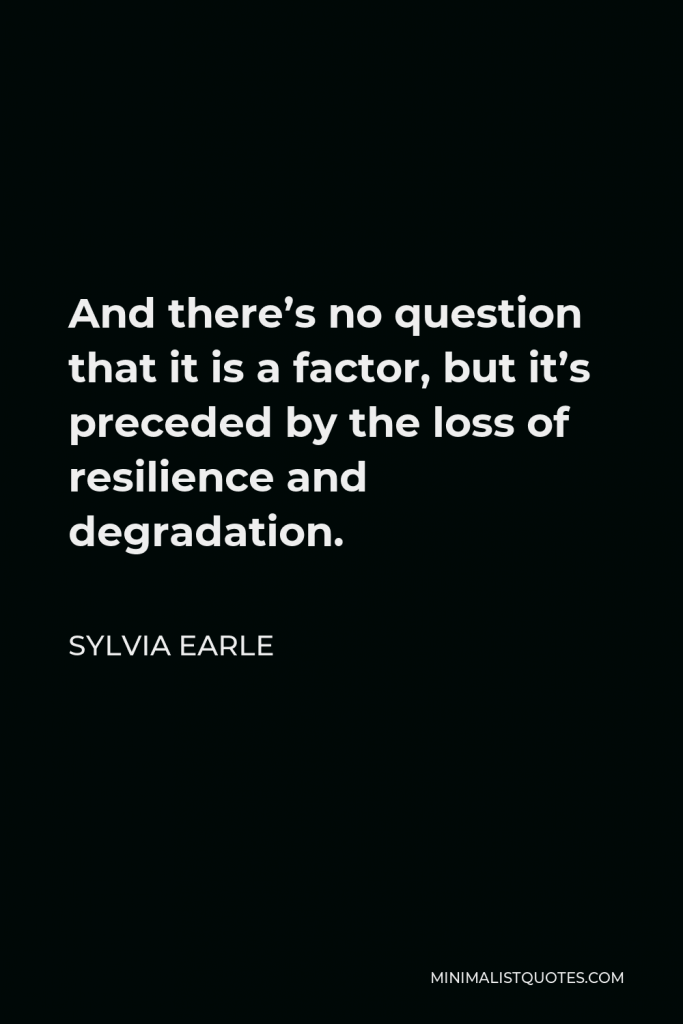

And there’s no question that it is a factor, but it’s preceded by the loss of resilience and degradation.
SYLVIA EARLE
